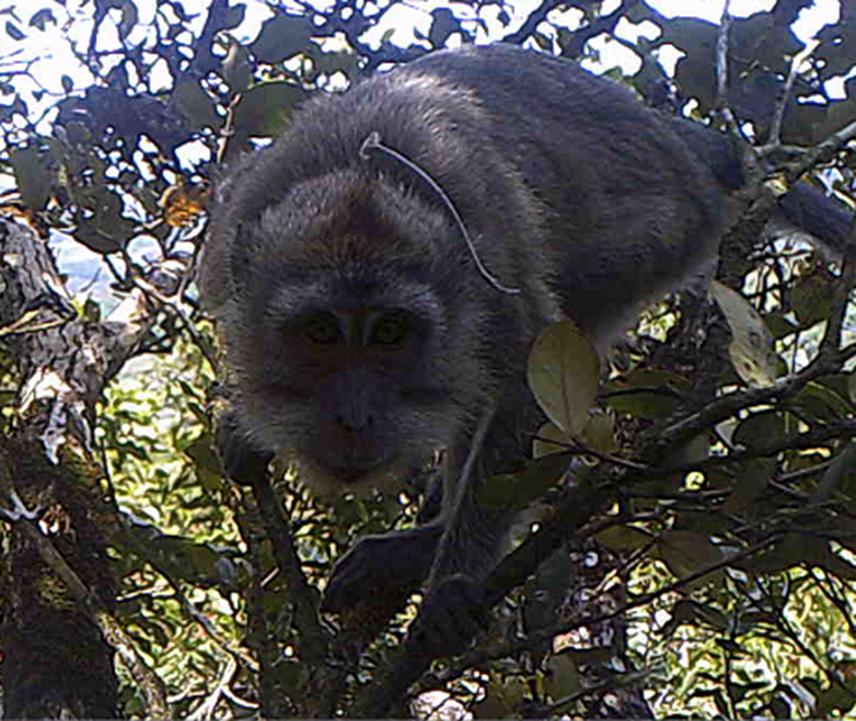Raphael Reinegger
Other projects
6 Nov 2017
The Feeding Competition between an Invasive Macaque Macaca fascicularis and the Mauritian Flying Fox Pteropus niger
12 Jun 2020
The Effects of Fruit Availability on Diet Composition and Feeding Behaviour of Invasive Macaca fascicularis in Mauritius: Implications for Conservation of Pteropus Niger and Native Forests
16 Jan 2024
A Systematic Survey of Long-Tailed Macaques in Mauritius Using Drone-Mounted Thermal Infrared Cameras
This project aims to estimate home range of macaque troops, to estimate the macaque population size and to quantify the impact of the macaques on availability of native food to fruit bats. Additionally, the study aims to assess the effects of weeding on fruit productivity of native plants and initiate a long term project on the impact of the ongoing invasion of exotic plant species on native forests. The results will indicate whether macaque removal and weeding of invasive plants can be used as tools to increase fruit availability to P. niger and help create a solid conservation plan for P. niger.

Radio-collared female caught on camera trap in Eugenia pyxidata in November
The Mauritian flying fox Pteropus niger is the last animal that disperses large seeded plants and plays a crucial role in forest regeneration and maintenance. Mauritius has lost 98% of its original forest cover and the remaining native plants survive in isolated forest patches usually located on mountain slopes. The invasive macaque Macaca fascicularis decreases the availability of the already limited native food to P. niger, likely forcing P. niger to feed in commercial orchards and fueling the bat-human conflict. The perceived impact of P. niger on commercial fruits has repeatedly resulted in mass culling, leading to a population decline of nearly 50%.
This study aims to assess the actual impact of the invasive macaques on food availability to P. niger by radiotracking macaques in the Calebasses mountain range. A total number of 10 adult macaques will be trapped and equipped with radiocollars. After release the macaques and their respective troops will be tracked and studied throughout the year to estimate home range, population size and damage to native plants and fruits. It will provide the evidence that the current macaque population drives the bats from the forest to feed in commercial orchards.
Furthermore, a long term study on the impact of the ongoing invasion of exotic plant species on native plants will be initiated by weeding a total of 10 plots (5m by 5m) in the Calebasses mountain range. Fruit production of various native and endemic plants will be compared between weeded and non-weeded plots. Invasive weeds are one of the main drivers of the ongoing forest degradation in Mauritius and greatly limit fruit productivity of native plants. Fruit production is expected to increase dramatically within the first two years of weed removal.
This research will indicate whether control of invasive macaques and weeds can be used as efficient tools to restore native forest and increase the availability of native fruits to P. niger to help develop a conservation action plan for P. niger.